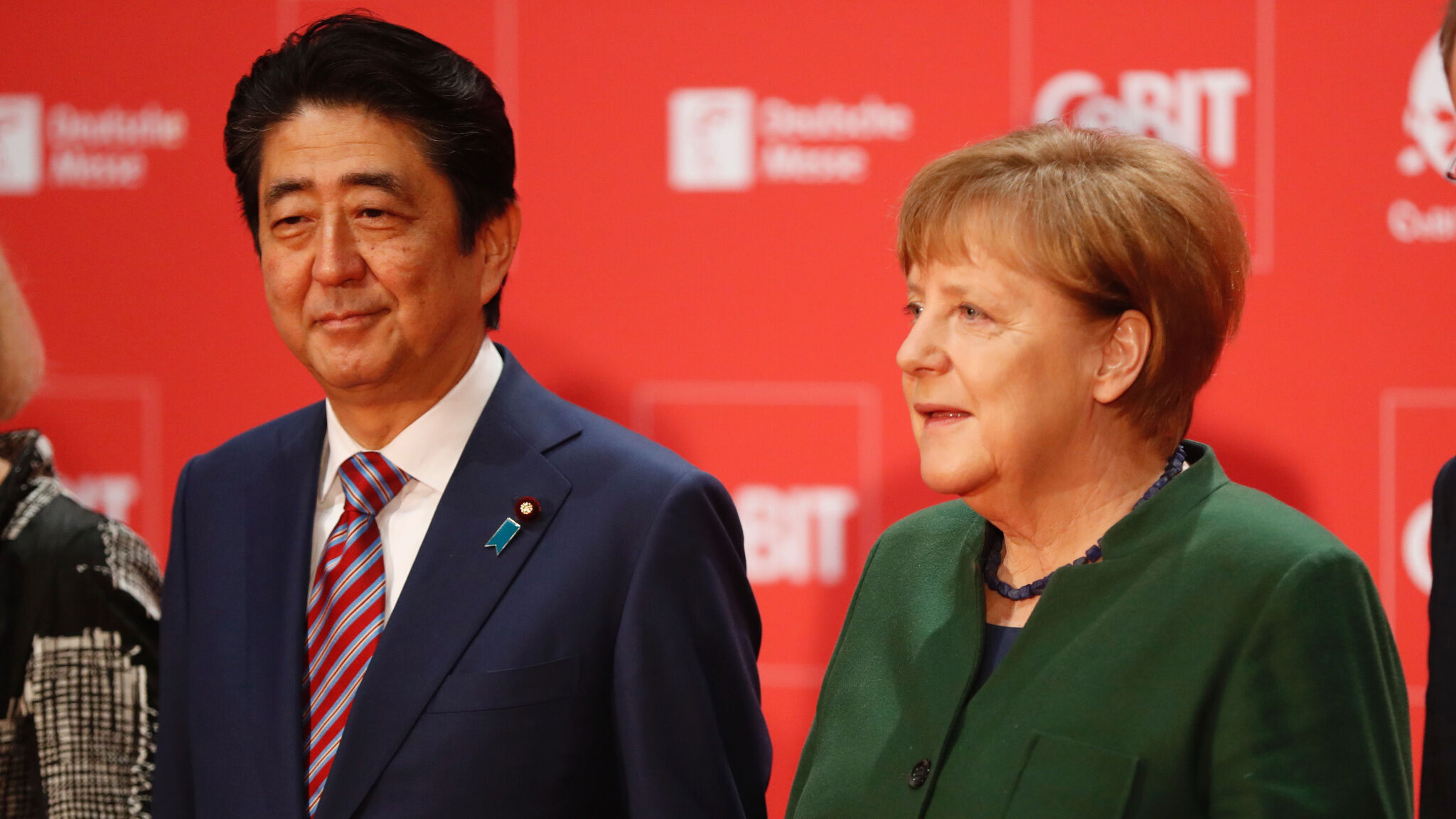
Germany and Japan: Champions of Democracy and Free Trade?
Japanese and German leaders held important meetings with the new United States administration last week. Since then, both nations have made it clear they’d rather work with each other than with America.
German Chancellor Angela Merkel met with U.S. President Donald Trump in Washington, D.C., on March 17. The day before, March 16, U.S. Secretary of State Rex Tillerson met with Japanese Prime Minister Shinzō Abe in Tokyo.
Following the meetings with their American allies, both Abe and Merkel called to quickly seek free-trade deals between Japan and the European Union.
Merkel and Abe met in Hanover, Germany, on Sunday, March 19, at the CeBIT technology show.
“At a time when we have to quarrel with many about free trade, open borders and democratic values, it’s a good sign that Germany and Japan aren’t quarreling about that,” Merkel said, taking subtle jabs at President Trump. Abe said that he “wants to be the champion of upholding open systems alongside Germany.”
Following China, Japan is the EU’s second-largest trading partner in Asia. Together, the EU and Japan make up one third of the world’s economic output. In 2013, the two trade powers began talks to work toward lowering trade barriers. Tokyo and Brussels hope to implement a broad free-trade agreement by the end of 2017. Japan has been more eager to see this deal come to fruition since President Trump pulled America out of the Trans-Pacific Partnership in January.
“The display of German-Japanese unity underscores the rift elsewhere among the world’s biggest economic powers after U.S. insistence on ‘fair’ trade triggered conflict at the weekend meeting …,” Bloomberg wrote.
In Hanover, Abe said, “Germany and Japan have one thing in common: We have both come this far because we reaped the benefits of trade and investment.” Abe failed to mention that many of those benefits came directly as a result of American trade and investment. President Trump views such investment as debt, which countries like Japan, and especially Germany, owe the United States.
Such polarized views are quickly turning into a trade war—which will just as quickly turn into hot war. In fact, “Trade Wars Have Begun” already, wrote Trumpet contributing editor Brad Macdonald in the April 2017 Trumpet print issue.
In January, Mr. Trump threatened to place a 35 percent tax on some German imports, which has Germany outraged—and the world, including Japan, is rushing to Berlin’s aid.
Bible prophecy says that World War iii will begin with a trade war. It also says that a “mart of nations” will besiege America (along with Britain and the Jewish nation in the Middle East). The book of Isaiah reveals who will be in this global economic union. Seven years ago, Trumpet editor in chief Gerald Flurry wrote: “[W]e believe there may be a brief alliance between the German-led Holy Roman Empire and certain Asian powers (Russia, China, Japan …).”
This latest round of trade wars is already triggering this German-Japanese trade alliance—an event with ominous historical echoes.
In 1968, Herbert W. Armstrong predicted exactly what we are seeing in the global economic climate. He said the start of World War iii would be “economic in nature. We have shown how God prophesied a virtual trade war will get underway against the United States and Britain ….”
The Bible details great destruction that will soon consume the whole world. But it also describes how you can escape the tumult. Read “Trade Wars Have Begun,” and request Mr. Flurry’s booklet Isaiah’s End-Time Vision to see the positive ending that will follow the turbulent times just ahead.
